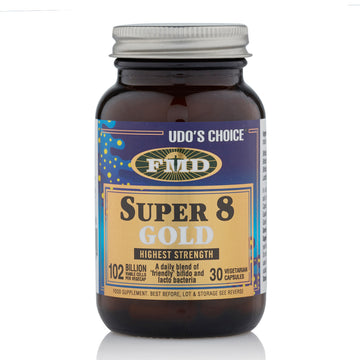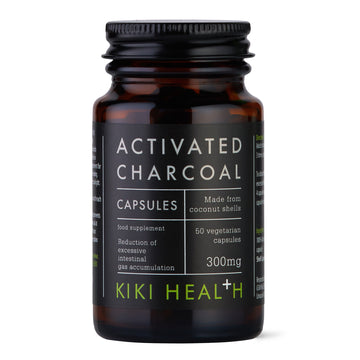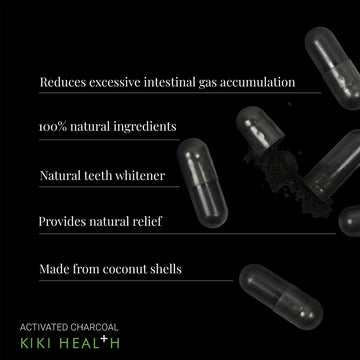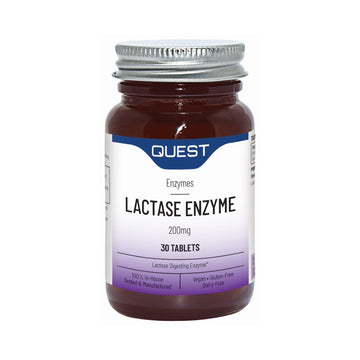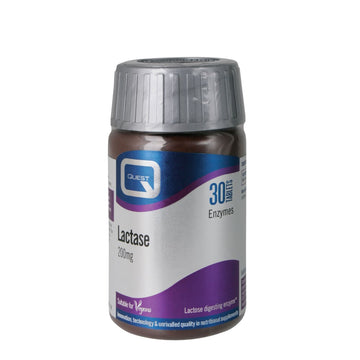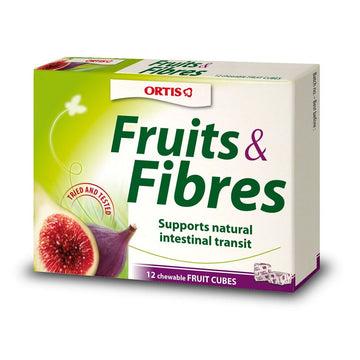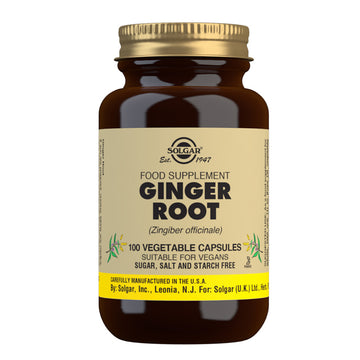Gas, constipation, tummy aches? Looking to get your hands on some of the best supplements for digestive health? Digestive issues affect each and every one of us at some stage. And some unfortunately more than others. It's not the easiest thing to talk about but luckily there are some things that can help. The cause may not be the same for each person, but there are some natural ways you can support your digestive health. We've compiled some of the best supplements for digestive health below...
What does the Digestive System do?
Our digestive system's job is to break food down in to nutrients for the body to absorb and use for energy, cell repair and growth. It then takes the waste and disposes it via bowel movements. It's a complex system and process and as a result it can have some complex and unwanted side effects in the form of aches, unpleasant reactions to food and drink and bowel issues.
The best supplements for digestive health
The upside is that because these ailments are so common, there's a host of readily available tablets and supplements that can help reduce common digestive health problems like acid reflux, IBS (Irritable Bowel Syndrome) and flatulence. Here are some of the most effective and trusted tablets and supplements for supporting digestive health, that will help treat any current digestive issues, and avoid potential future ones.
Probiotics - Great for Overall Digestive Health
People generally think of bacteria as a negative thing but probiotics are a ‘friendly’ bacteria which help to balance the ‘good’ and ‘bad’ bacteria within your body, to help keep your body functioning as it should. Whilst the body is capable of producing probiotics by itself, in many cases our lifestyles or unfortunate health issues can unsettle this balance.
Because of this, probiotics have become increasingly popular as a supplement designed to combat this imbalance. When a bacterial imbalance occurs, it can cause Candida, diarrhoea, urinary tract infections and other issues which impact how your digestive system functions.
Probiotics is the overall name for this supplement, however, there are many different types which offer incredible nutritional benefits. There are several types available and they're tailored to particular age groups.
Apple Cider Vinegar - Aids Digestion
One of the most popular and trusted supplements for digestive health is the fantastic and invigorating apple cider vinegar. It's available in both liquid and tablet form. So, what are the benefits? Firstly, it helps stimulate the digestive juices in your body, helping you to break down nutrients more effectively.
It also includes fat-burning acetic acid, which helps reduce hunger and excessive eating. The benefits of apple cider vinegar also mean that you assimilate more of the goodness within your food. Read why you should add apple cider vinegar to your beauty regime.
Activated Charcoal Tablets - Flatulence
Activated Charcoal tablets help absorb flatulent gas by taking in the digestive system’s toxins and impurities as it goes. This ensures that less of the gas escapes your body as flatulence, and that any gas which does escape has its usually unpleasant smell minimised.
Activated Charcoal is typically made from carbon-containing material, like wood, that is heated at high temperatures to create charcoal, then oxidised – a process known as ‘activation’. This activation process makes the charcoal extremely adsorbent, allowing it to bind to molecules, ions, or atoms, making it a popular detox and digestive health supplement.
Lactase - Lactose Intolerance
Maintaining a streamlined dairy-free diet is one way to help combat lactose intolerance, but you can try tablets if you prefer. Lactase tablets help this incurable (but manageable) dietary condition, by combatting any ill-effects suffered by consuming dairy products. It means that if you have this intolerance, and accidentally (or purposefully!) have dairy, it’s far from a major issue.
Fibre - Constipation
You probably already know that fibre is an essential part of any diet and naturally helps to prevent constipation, alongside a host of other digestive health benefits. However, not all foods containing fibre can help to prevent the effects of constipation. There are two different types of fibre that you should be aware of; soluble and insoluble.
Soluble Fibre
Soluble fibre is found in:
It can be digested by the body. It absorbs water, helping to soften your stools and make them easier to pass.
Insoluble Fibre
Insoluble fibre is found in:
- wheat bran
- whole grains
- cereals
- seeds
However, it cannot be digested. But it does help other foods to pass through your digestive system. Insoluble fibre is best for constipation.
How much fibre should I be eating?
If you do find yourself with constipation, it's a clear sign you're not getting enough fibre in your diet. Most people in the UK and Ireland usually consume around 14g of fibre per day. However, adults are recommended to take approximately 30g of dietary fibre per day. The best course of action for constipation is to increase the amount of fibre you're consuming on a daily basis.
If your stool continues to be hard, even after making a conscious effort to increase your fibre intake, there are a number of high fibre supplements that can help to make your stool easier to pass. It's best to look for supplements that contain a balanced mix of both soluble and insoluble fibre, as this will ensure that you're consuming the necessary amounts to aid your digestive health.
However, it's important to note that when increasing the amount of fibre you take whether it's through food or supplements, you will need to up your water intake too to ensure the stool doesn't become too hard.
Certain vitamins can also support your digestive system and help it to function properly. Read about the essential vitamins for digestive health.
Ginger - Stomach Aches
Okay, we know ginger isn’t technically a tablet or medicine, but numerous studies have shown that it’s an extremely effective way to help prevent and cure stomach aches, and it's easy to make part of your diet.
We recommend starting with 1 gram per day of fresh root ginger (although you can build it up to 3gm maximum over time), available from any good supermarket. Or you can use ginger in a glass of hot water, for a fragrant cup of tea! We also offer Ginger supplements - take a look at the range here.
The verdict
While the digestive system can and often does cause regular issues for some of us, many of the problems which can arise - from heartburn to constipation - can be soothed or even stopped. Just follow our tips on the best supplements for digestive health to get yourself back on track!
Please note, this blog is for informational purposes only and should not replace medical advice.
It’s always best to consult your doctor before taking any new supplements, treatments or remedies if you are pregnant, breastfeeding or on medication.
If you want to know about how you can support your digestive health, read our blog 'Bacteria and Our Digestive System'.
Checked and updated: 1 May 2025



